Sutradhar, a non-profit educational resource centre, will hold its annual seminar, this time called, ‘Play in Hospitals’, on May 28 at Ashirwad, St Mark’s Road.
Sutradhar, a non-profit educational resource centre, will hold its annual seminar, this time called, ‘Play in Hospitals’, on May 28 at 4 pm at Ashirwad, St Mark’s Road. “We, at Sutradhar, have had annual programmes since 1996 to bring people involved with kids, like doctors, parents, NGOs and people from the government, together. A range of issues on early childhood are discussed, this time the topic being play therapy and therapeutic clowning,” says Revathi Suresh, the public relations official for the organisation. “Early childhood is a neglected period,” she adds. Sutradhar lays stress on the importance of play in education and believes that a variety of play materials allows children to learn concepts and make connections which are the foundations of early learning.
It is often a great challenge to take play to children in institutional settings like hospitals. The forum seeks to help chronically ill children who spend long periods away from home, under intense medical care. Though play therapy is relatively new in India, there are now organisations that are trying to make a difference to affected children and families by exploring ways to help them cope with the stress brought on by the hospital environment through focus on their emotional health and well-being. In this open forum, individuals from two such organisations will be sharing their experiences.
Doctor Clown India is India’s first therapeutic clowning group. It was brought into India from France by Severine Blanchet. These clowns are very different from the ones at the circus. “Therapeutic Clowning is where they make children comfortable in hospitals and sustain a cheerful environment,” says Suresh. “Therapeutic Clowning aims to offer unconditional love through non-violence or ‘ahimsa’ clowning,” says Nazu Tonze, aka Dr Gladys, the first professional female therapeutic clown in India, who will be speaking at the forum. “We make kids laugh so they don’t feel afraid. Even though many people call me a clown, I love my job. It is not as easy as it seems to ‘clown about’.”
Play therapy is generally employed with children between the ages of three and 11 providing a way for them to express their experiences and feelings through a natural, self-guided, self-healing process. “Play Therapy is the use of a theoretical model of role-play to help the child adjust to a stressful situation. In hospitals, it is used for chronically ill children. We have evolved our own bedside model, where we go to the kids instead of them coming to us.”
Play Therapy was started in Pune by the Deenanath Mangeshkar Hospital and Research Centre. It is now being used in Manipal Hospital, Bangalore through the Priyanka Foundation. “We plan to share our experiences of two and a half years in Play Therapy and train people who are interested,” says Meera Oke, who is also scheduled to speak at the forum.
“The doctors in Manipal took a while to get used to the idea of Play Therapy, but now they fully support the idea and say it is an important part of care, especially in chronic cases like cancer. It makes a child feel ‘at home’, even in a hospital,” says Oke, adding, “We familiarise kids through medical play where we use small play models of the hospital equipment so the child knows what will happen to him. There is also a reversal of roles, where the child pretends to ‘operate’ on a doll.”
Sanjokta Malgonda, who works directly with the children at Manipal, says, “At first, there was no response from the kids, but soon, they understood the concept. Thanks to Play Therapy, we were able to establish a rapport with the children and they seemed to enjoy themselves.”
The mother of a five-year-old patient in Manipal Hospital says, “I think Play Therapy is a good thing. My son was able to enjoy it despite the dreary surroundings. Every day, he responded joyfully when a new toy was given to him. I recommend Play Therapy for all kids in hospitals. It helps them keep their minds off the pain.”
Usha Shinde, a counsellor, holds the view that Play Therapy forms an essential part of a child’s treatment, especially if he/she has been hospitalised for a long period of time. “Forty minutes of play per day have proven to have a therapeutic effect on the child,”
she adds.
![submenu-img]() Viral video: Ghana man smashes world record by hugging over 1,100 trees in just one hour
Viral video: Ghana man smashes world record by hugging over 1,100 trees in just one hour![submenu-img]() This actress, who gave blockbusters, starved to look good, fainted at many events; later was found dead at...
This actress, who gave blockbusters, starved to look good, fainted at many events; later was found dead at...![submenu-img]() Taarak Mehta actor Gurucharan Singh operated more than 10 bank accounts: Report
Taarak Mehta actor Gurucharan Singh operated more than 10 bank accounts: Report![submenu-img]() Ambani, Adani, Tata will move to Dubai if…: Economist shares insights on inheritance tax
Ambani, Adani, Tata will move to Dubai if…: Economist shares insights on inheritance tax![submenu-img]() Cargo plane lands without front wheels in terrifying viral video, watch
Cargo plane lands without front wheels in terrifying viral video, watch![submenu-img]() DNA Verified: Is CAA an anti-Muslim law? Centre terms news report as 'misleading'
DNA Verified: Is CAA an anti-Muslim law? Centre terms news report as 'misleading'![submenu-img]() DNA Verified: Lok Sabha Elections 2024 to be held on April 19? Know truth behind viral message
DNA Verified: Lok Sabha Elections 2024 to be held on April 19? Know truth behind viral message![submenu-img]() DNA Verified: Modi govt giving students free laptops under 'One Student One Laptop' scheme? Know truth here
DNA Verified: Modi govt giving students free laptops under 'One Student One Laptop' scheme? Know truth here![submenu-img]() DNA Verified: Shah Rukh Khan denies reports of his role in release of India's naval officers from Qatar
DNA Verified: Shah Rukh Khan denies reports of his role in release of India's naval officers from Qatar![submenu-img]() DNA Verified: Is govt providing Rs 1.6 lakh benefit to girls under PM Ladli Laxmi Yojana? Know truth
DNA Verified: Is govt providing Rs 1.6 lakh benefit to girls under PM Ladli Laxmi Yojana? Know truth![submenu-img]() Alia Bhatt wears elegant saree made by 163 people over 1965 hours to Met Gala 2024, fans call her ‘princess Jasmine’
Alia Bhatt wears elegant saree made by 163 people over 1965 hours to Met Gala 2024, fans call her ‘princess Jasmine’![submenu-img]() Jr NTR-Lakshmi Pranathi's 13th wedding anniversary: Here's how strangers became soulmates
Jr NTR-Lakshmi Pranathi's 13th wedding anniversary: Here's how strangers became soulmates![submenu-img]() Streaming This Week: Heeramandi, Shaitaan, Manjummel Boys, latest OTT releases to binge-watch
Streaming This Week: Heeramandi, Shaitaan, Manjummel Boys, latest OTT releases to binge-watch![submenu-img]() Remember Ayesha Kapur? Michelle from Black, here's how actress, nutrition coach, entrepreneur looks after 19 years
Remember Ayesha Kapur? Michelle from Black, here's how actress, nutrition coach, entrepreneur looks after 19 years![submenu-img]() Remember Heyy Babyy's cute 'Angel' Juanna Sanghvi? 20 year-old looks unrecognisable now, fans say 'her comeback will...'
Remember Heyy Babyy's cute 'Angel' Juanna Sanghvi? 20 year-old looks unrecognisable now, fans say 'her comeback will...'![submenu-img]() Haryana Political Crisis: Will 3 independent MLAs support withdrawal impact the present Nayab Saini led-BJP government?
Haryana Political Crisis: Will 3 independent MLAs support withdrawal impact the present Nayab Saini led-BJP government?![submenu-img]() DNA Explainer: Why Harvey Weinstein's rape conviction was overturned, will beleaguered Hollywood mogul get out of jail?
DNA Explainer: Why Harvey Weinstein's rape conviction was overturned, will beleaguered Hollywood mogul get out of jail?![submenu-img]() What is inheritance tax?
What is inheritance tax?![submenu-img]() DNA Explainer: What is cloud seeding which is blamed for wreaking havoc in Dubai?
DNA Explainer: What is cloud seeding which is blamed for wreaking havoc in Dubai?![submenu-img]() DNA Explainer: What is Israel's Arrow-3 defence system used to intercept Iran's missile attack?
DNA Explainer: What is Israel's Arrow-3 defence system used to intercept Iran's missile attack?![submenu-img]() This actress, who gave blockbusters, starved to look good, fainted at many events; later was found dead at...
This actress, who gave blockbusters, starved to look good, fainted at many events; later was found dead at...![submenu-img]() Taarak Mehta actor Gurucharan Singh operated more than 10 bank accounts: Report
Taarak Mehta actor Gurucharan Singh operated more than 10 bank accounts: Report![submenu-img]() Aavesham OTT release: When, where to watch Fahadh Faasil's blockbuster action comedy
Aavesham OTT release: When, where to watch Fahadh Faasil's blockbuster action comedy![submenu-img]() Sonakshi Sinha slams trolls for crticising Heeramandi while praising Bridgerton: ‘Bhansali is selling you a…’
Sonakshi Sinha slams trolls for crticising Heeramandi while praising Bridgerton: ‘Bhansali is selling you a…’![submenu-img]() Sanjeev Jha reveals why he cast Chandan Roy in his upcoming film Tirichh: 'He is just like a rubber' | Exclusive
Sanjeev Jha reveals why he cast Chandan Roy in his upcoming film Tirichh: 'He is just like a rubber' | Exclusive![submenu-img]() IPL 2024: Mumbai Indians knocked out after Sunrisers Hyderabad beat Lucknow Super Giants by 10 wickets
IPL 2024: Mumbai Indians knocked out after Sunrisers Hyderabad beat Lucknow Super Giants by 10 wickets![submenu-img]() PBKS vs RCB IPL 2024: Predicted playing XI, live streaming details, weather and pitch report
PBKS vs RCB IPL 2024: Predicted playing XI, live streaming details, weather and pitch report![submenu-img]() PBKS vs RCB IPL 2024 Dream11 prediction: Fantasy cricket tips for Punjab Kings vs Royal Challengers Bengaluru
PBKS vs RCB IPL 2024 Dream11 prediction: Fantasy cricket tips for Punjab Kings vs Royal Challengers Bengaluru![submenu-img]() Watch: Bangladesh cricketer Shakib Al Hassan grabs fan requesting selfie by his neck, video goes viral
Watch: Bangladesh cricketer Shakib Al Hassan grabs fan requesting selfie by his neck, video goes viral![submenu-img]() IPL 2024 Points table, Orange and Purple Cap list after Delhi Capitals beat Rajasthan Royals by 20 runs
IPL 2024 Points table, Orange and Purple Cap list after Delhi Capitals beat Rajasthan Royals by 20 runs![submenu-img]() Viral video: Ghana man smashes world record by hugging over 1,100 trees in just one hour
Viral video: Ghana man smashes world record by hugging over 1,100 trees in just one hour![submenu-img]() Cargo plane lands without front wheels in terrifying viral video, watch
Cargo plane lands without front wheels in terrifying viral video, watch![submenu-img]() Tiger cub mimics its mother in viral video, internet can't help but go aww
Tiger cub mimics its mother in viral video, internet can't help but go aww![submenu-img]() Octopus crawls across dining table in viral video, internet is shocked
Octopus crawls across dining table in viral video, internet is shocked![submenu-img]() This Rs 917 crore high-speed rail bridge took 9 years to build, but it leads nowhere, know why
This Rs 917 crore high-speed rail bridge took 9 years to build, but it leads nowhere, know why 
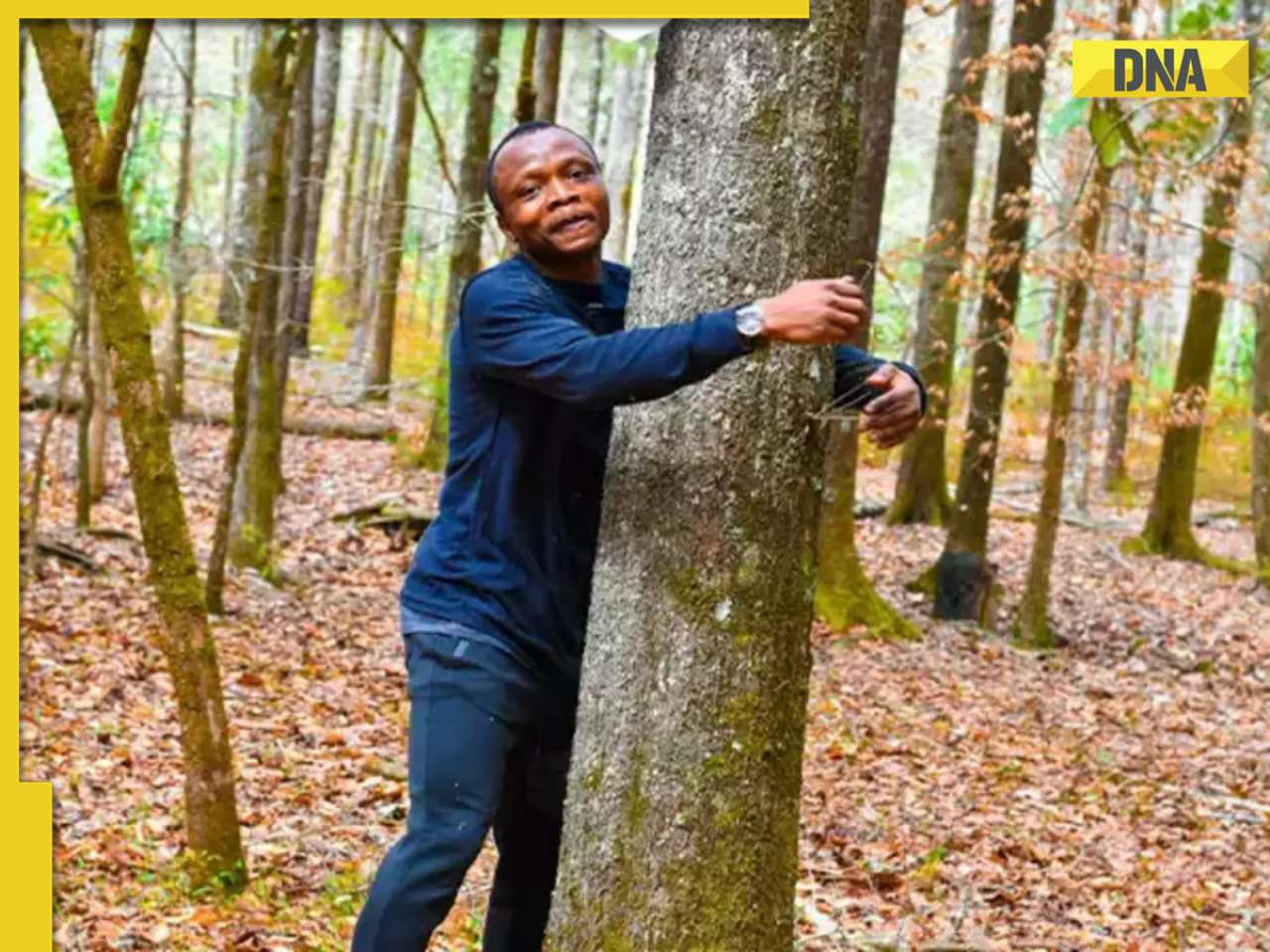
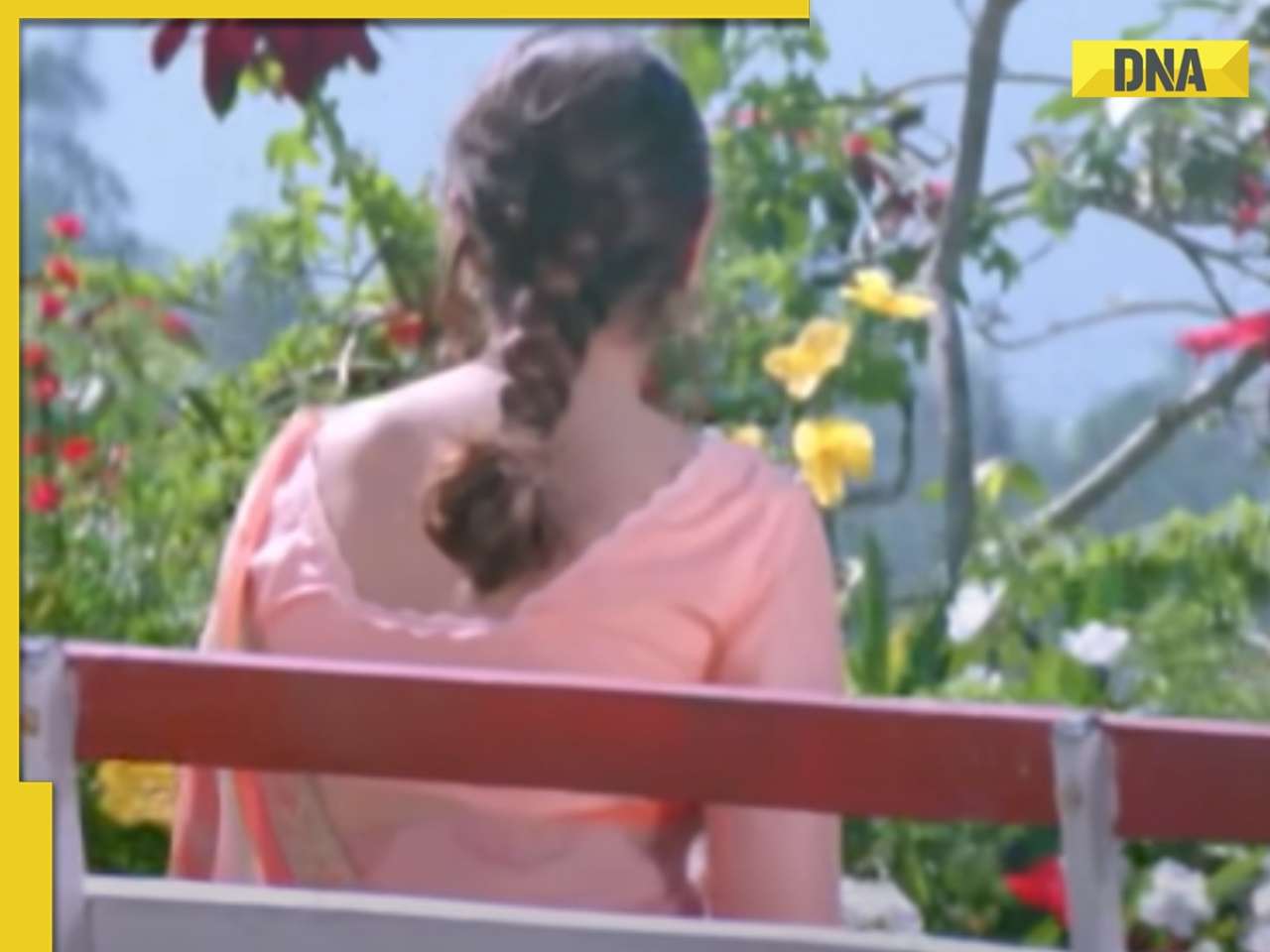
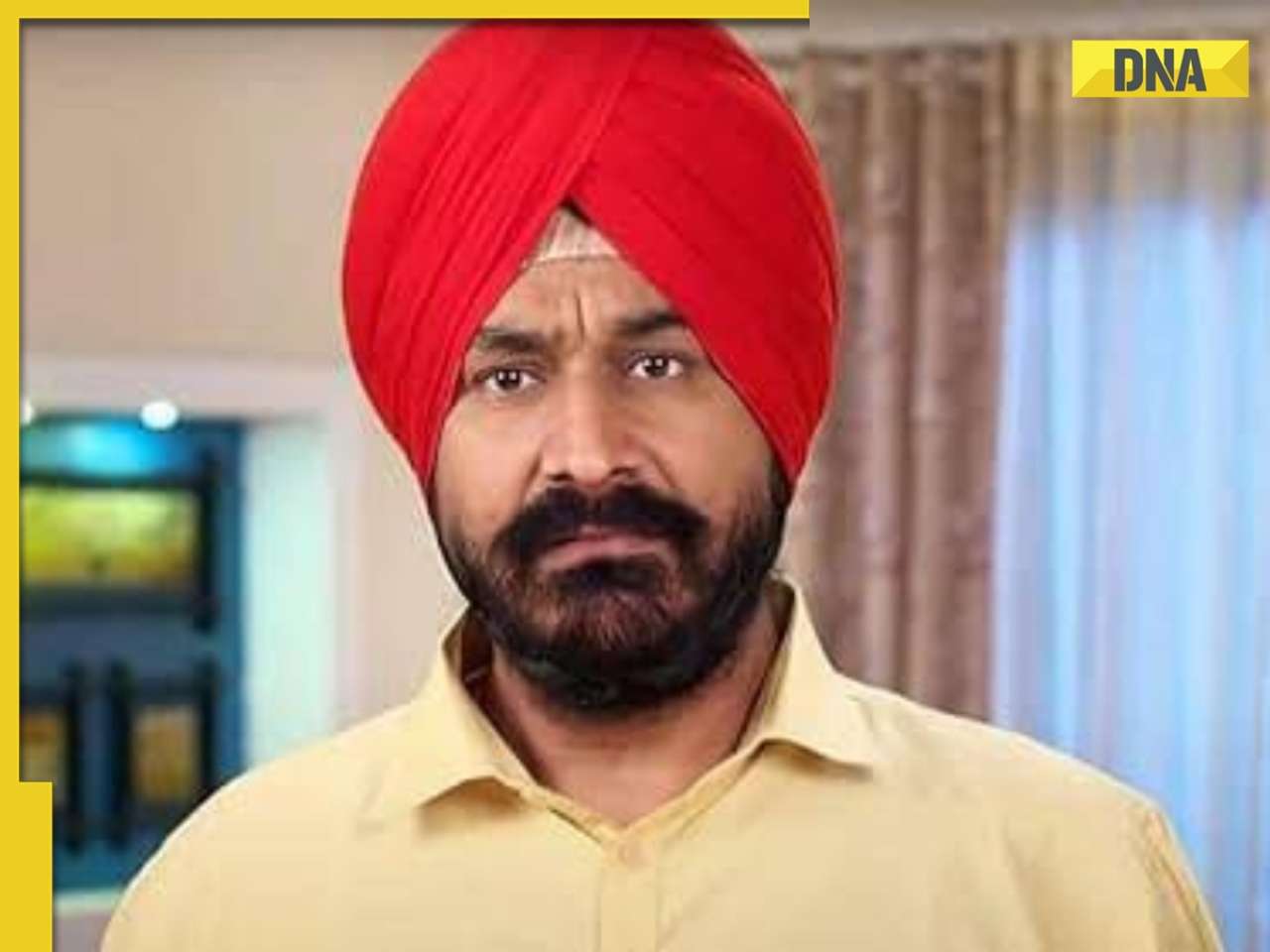
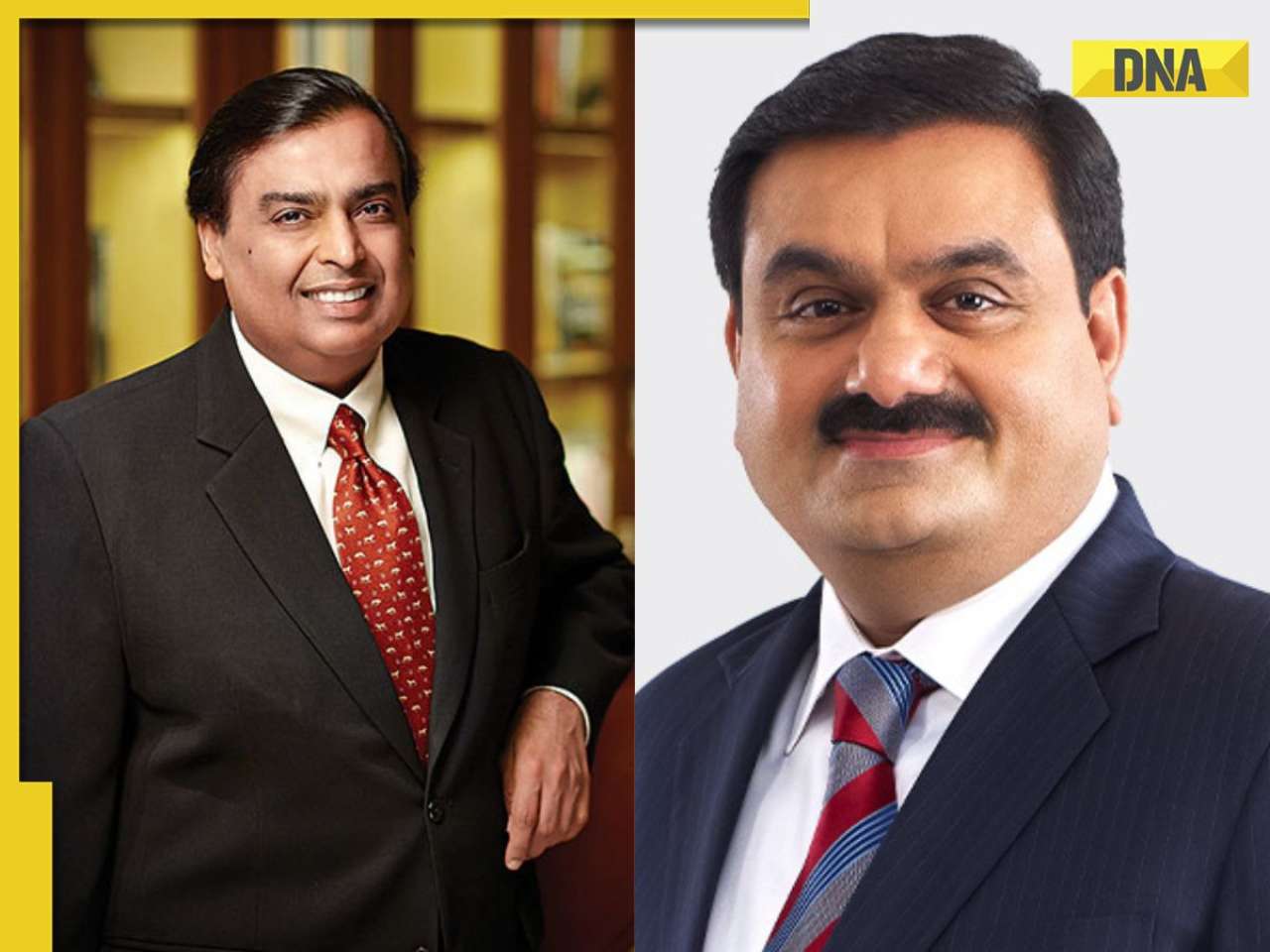





















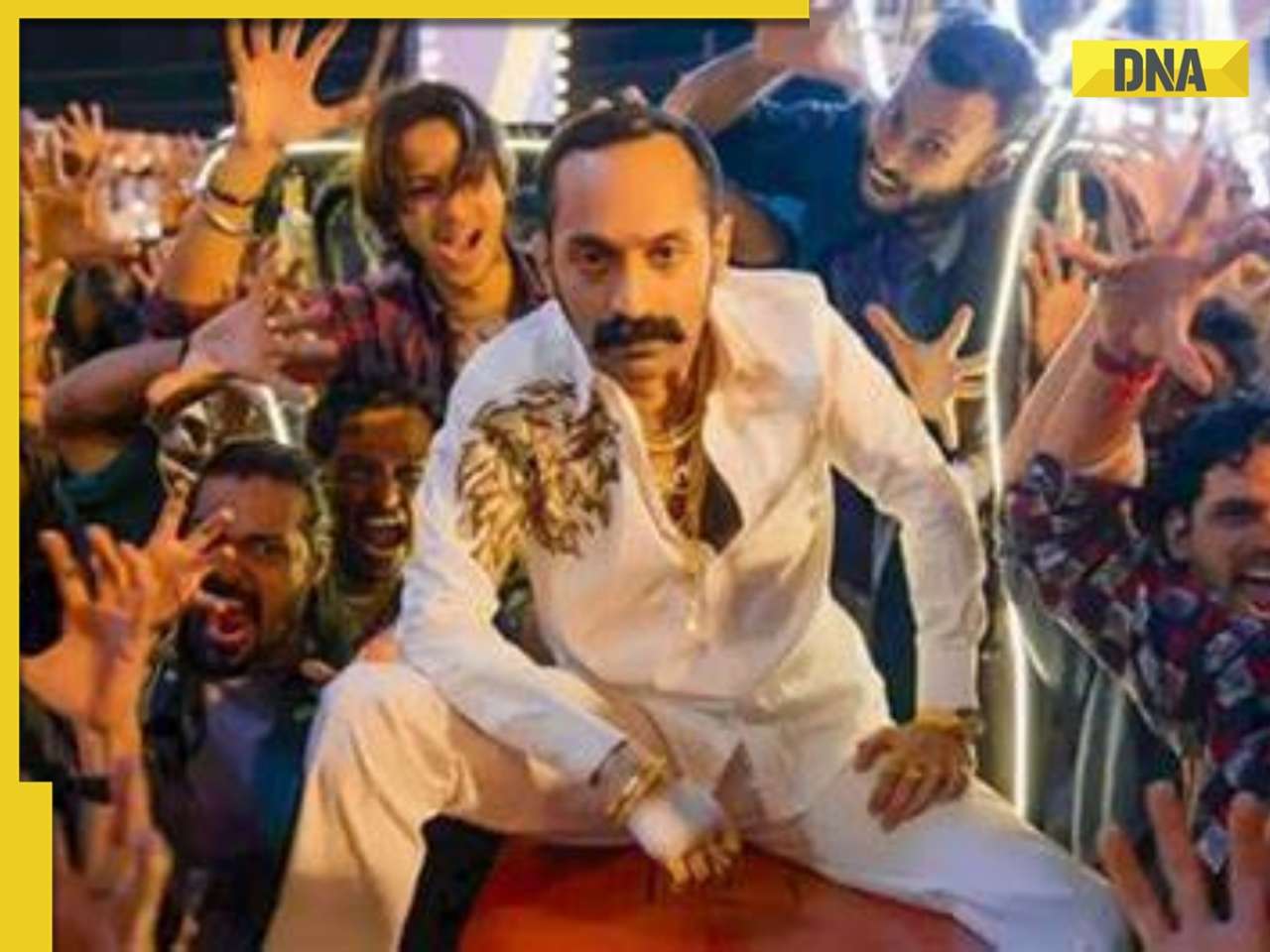

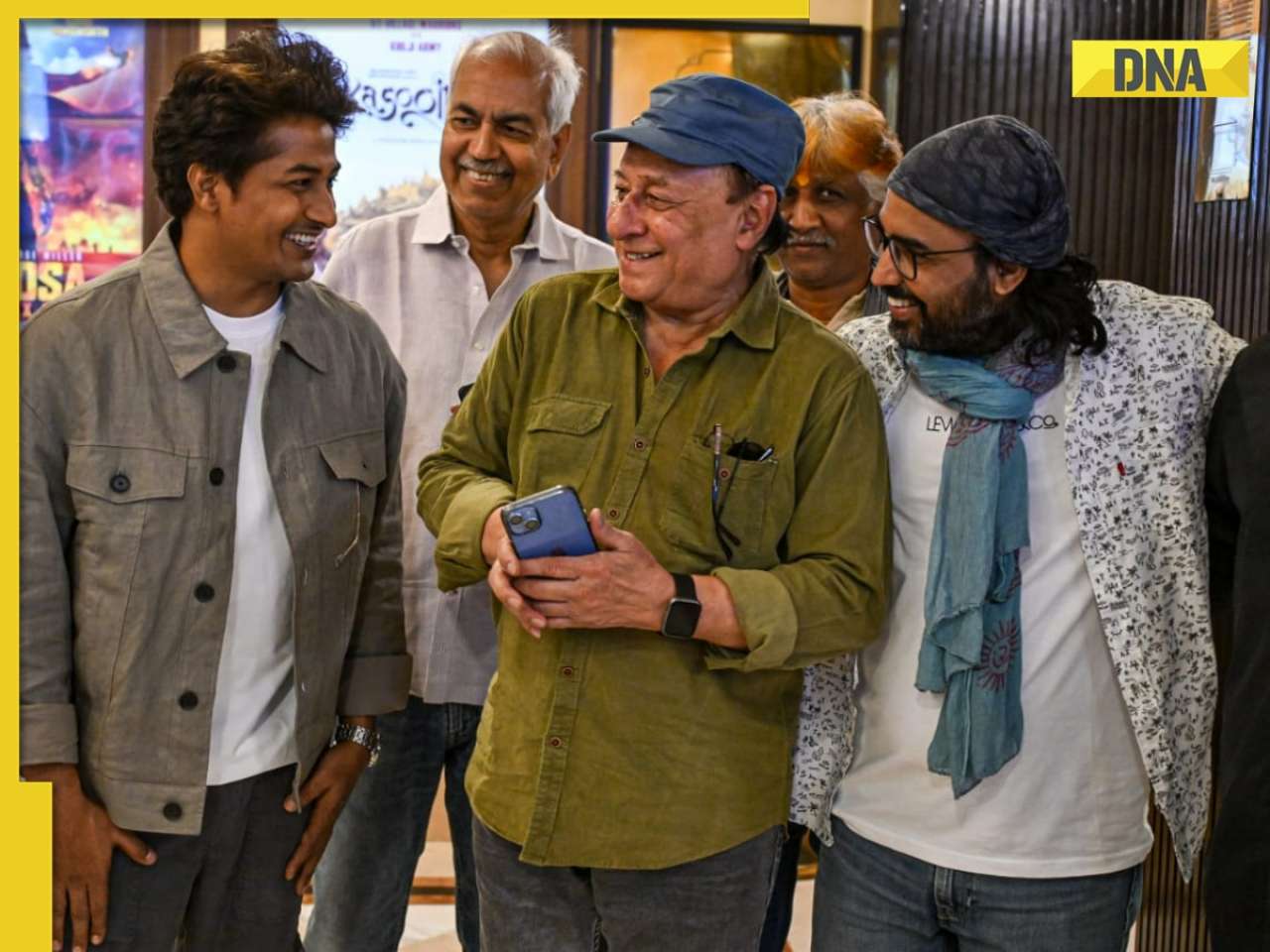
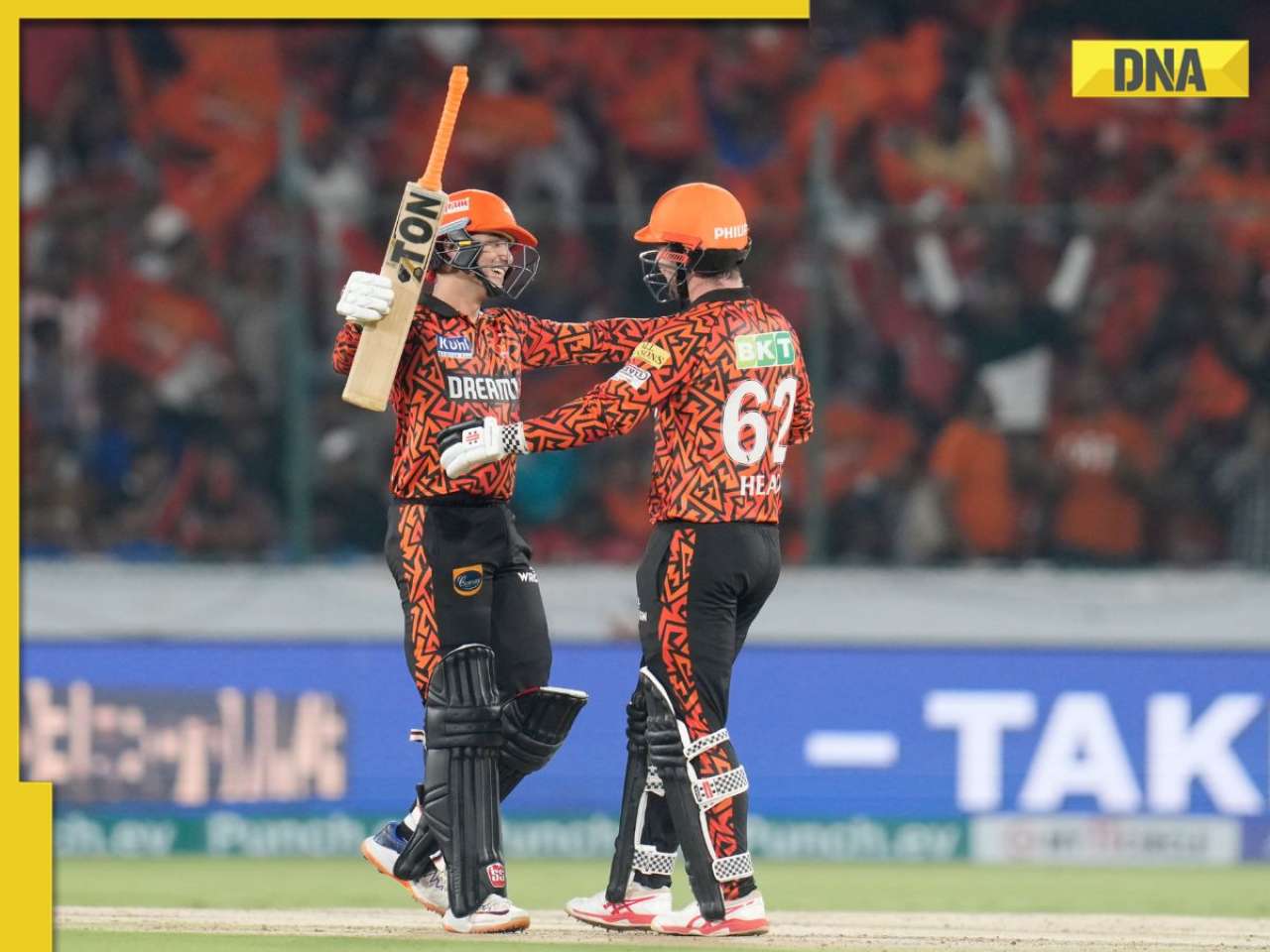
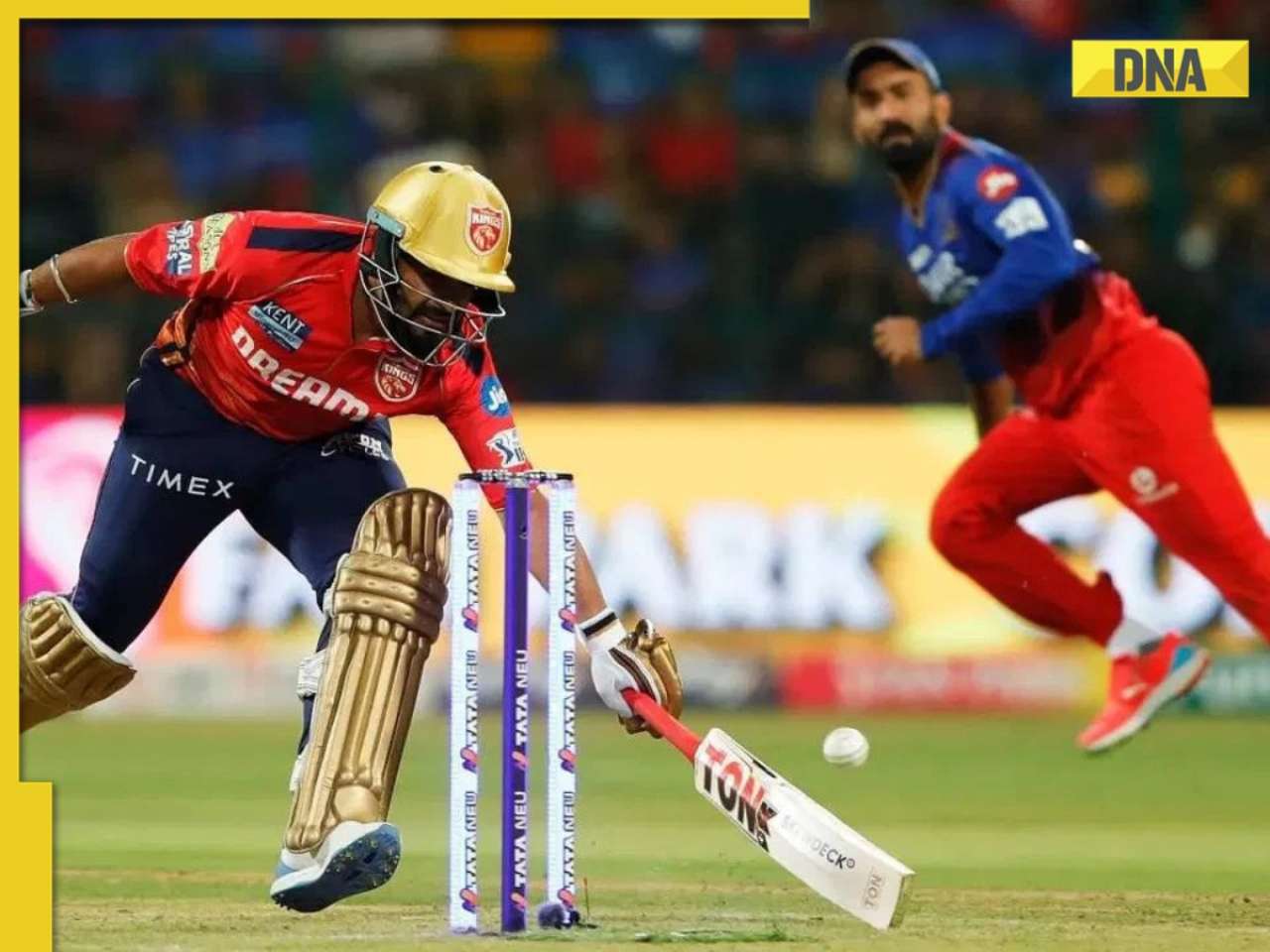
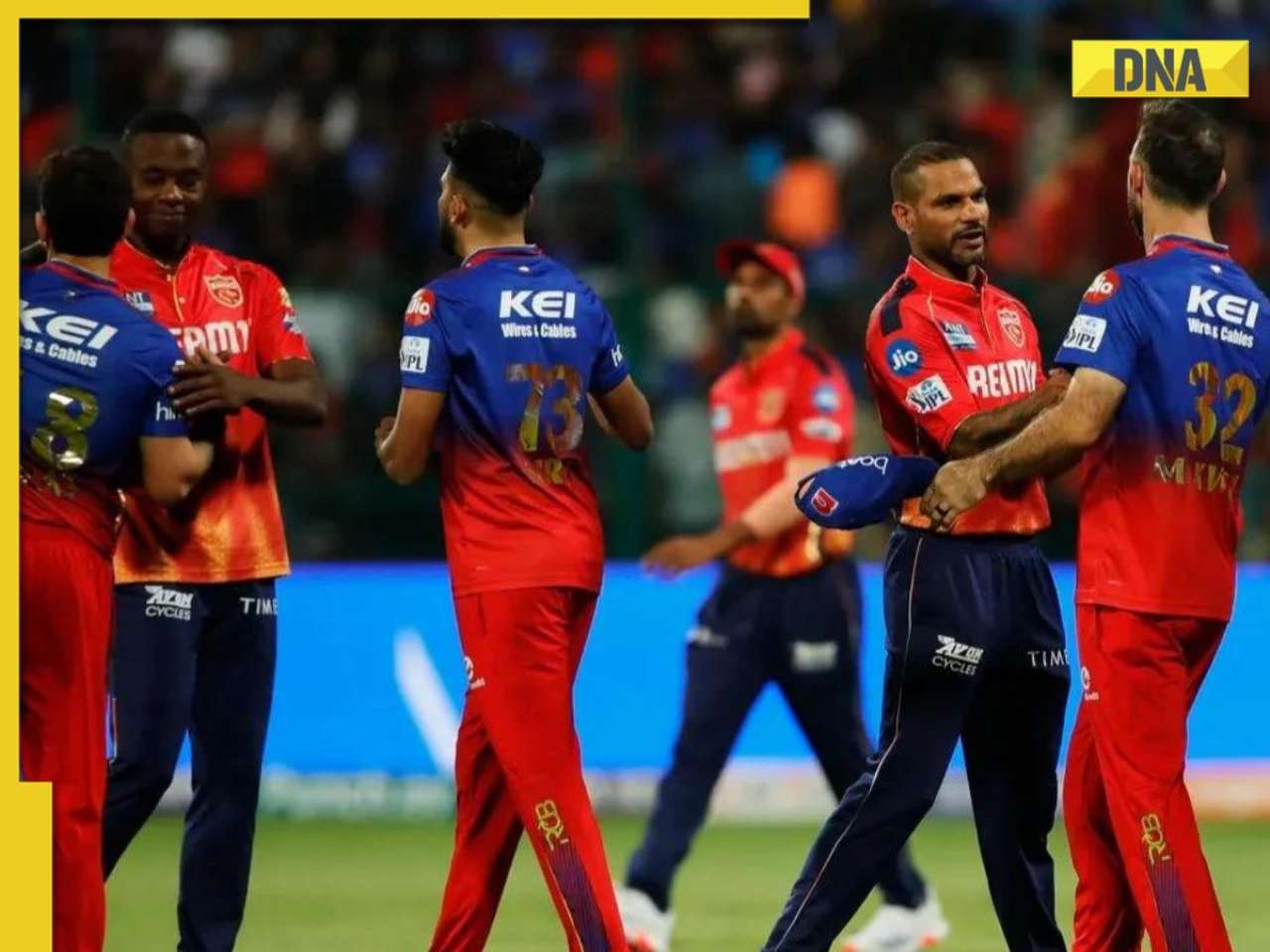
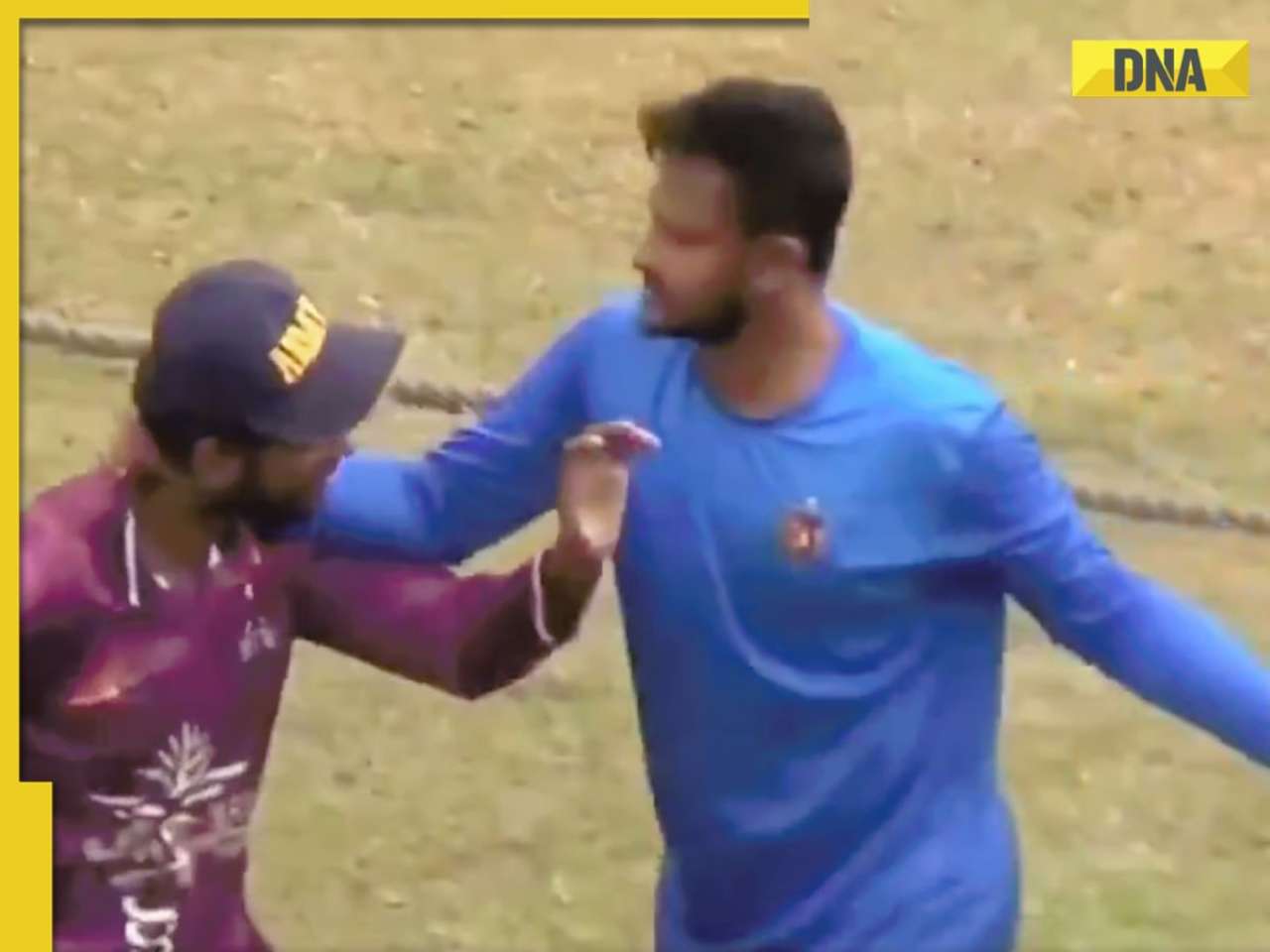
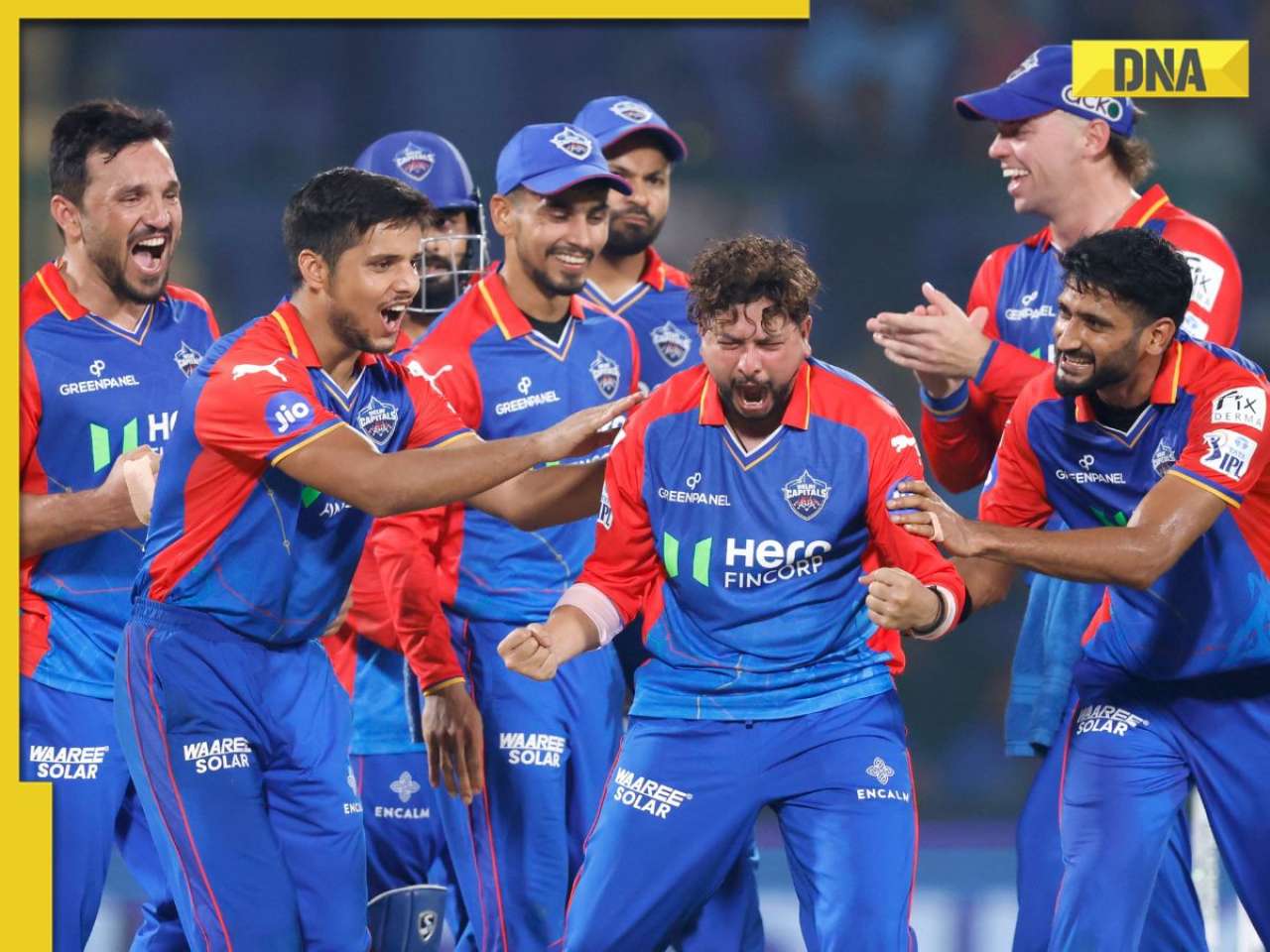

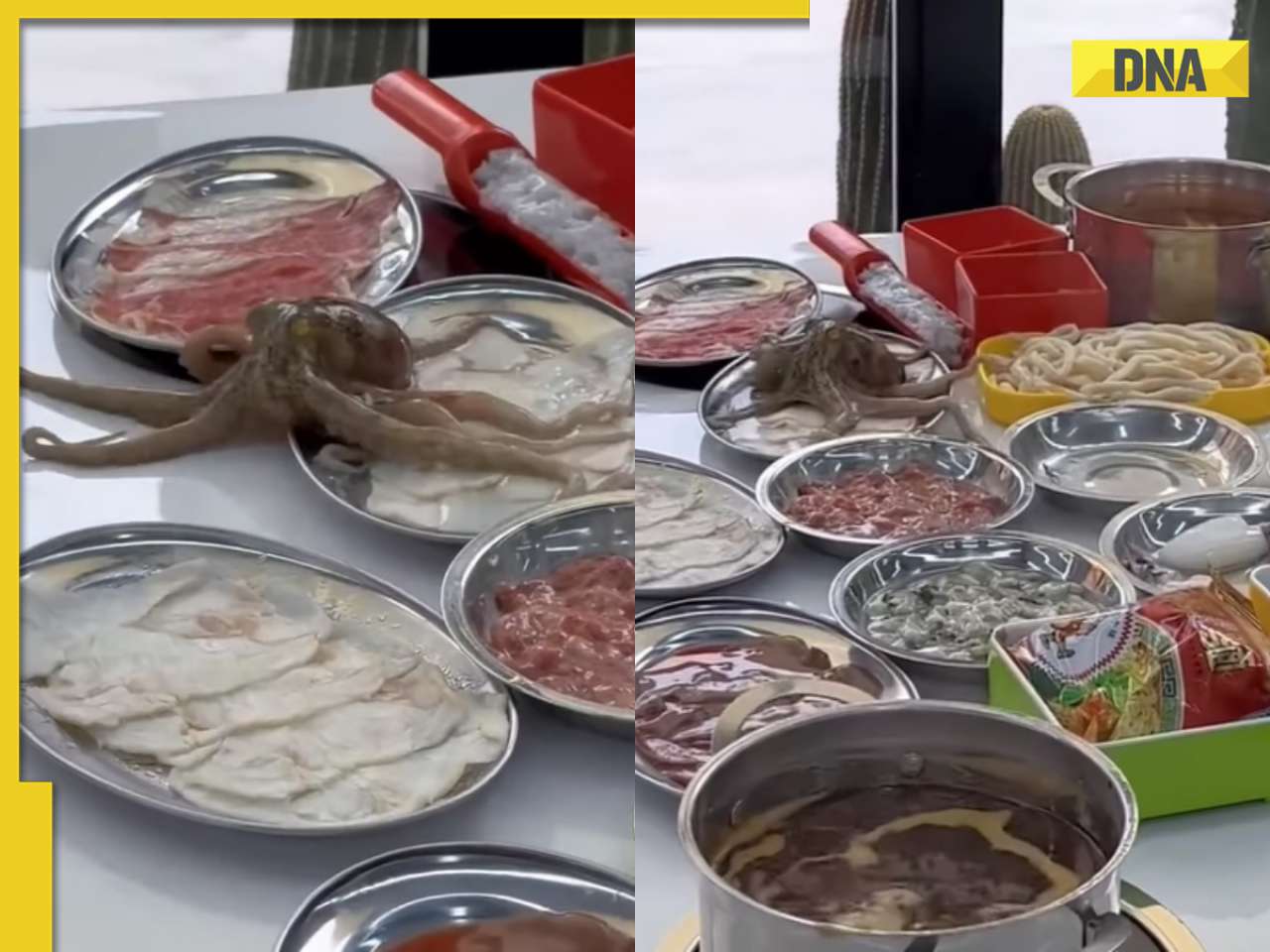













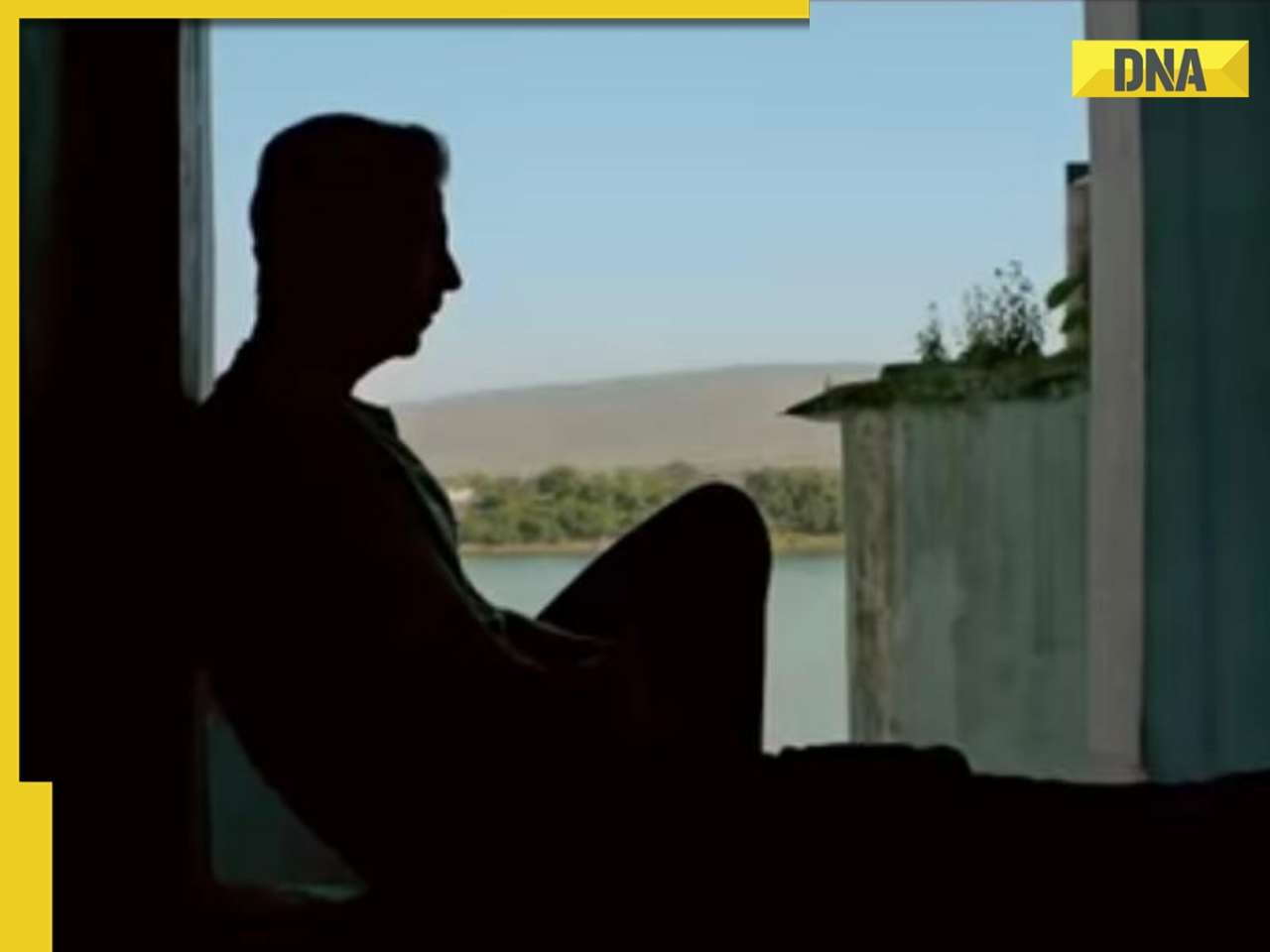




)
)
)
)
)
)